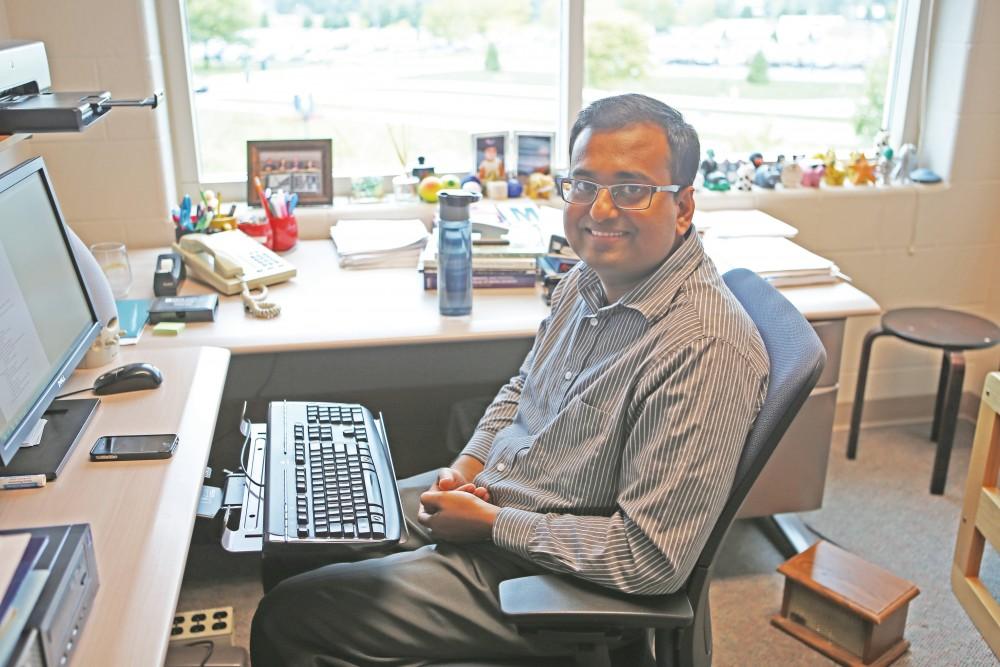Providing suicide prevention resources

GVL / Emily Frye Abraham Eapen, Psy.D. takes a moment of his time for a photo on Sep. 30th. Eapen is a counselor for the University Counseling Center and also the coordinator of Group Services.
Oct 5, 2015
In an effort to prepare students, faculty and staff with the necessary skills in aiding someone with suicidal behavior, the Grand Valley State University Counseling Center has taken on a nationwide challenge to train as many suicide prevention gatekeepers as possible within this academic year.
Hosted by the Association for University and College Counseling Center Outreach, the gatekeeper challenge began on Aug. 1 and runs until early June with close to 50 different universities competing.
Eric Klingensmith, assistant director at the Counseling Center, explained that a suicide prevention gatekeeper refers to the person who assists an individual that is experiencing suicidal thoughts or behaviors in finding a service that best meets their needs.
Becoming a suicide prevention gatekeeper is not exclusive to professionals. Anyone on campus is eligible to obtain gatekeeper status through regularly scheduled QPR (Question, Persuade, Refer) training sessions.
“Anyone who goes to the class is considered a gatekeeper,” Klingensmith said. “QPR is essentially CPR for mental health. It doesn’t make you a therapist, but it helps you know whether or not someone you know needs help.”
QPR sessions last roughly an hour long and are LIB 100/201 approved events.
Melissa Selby-Theut, coordinator of Outreach and Peer Education at the Counseling Center, said students will take an evaluation at the end of each training to gauge how much they learned.
“In the QPR method of suicide prevention, students learn how to respond when confronted with a person who is expressing suicidal thoughts,” Selby-Theut said. “The session also takes a look at suicide through a multicultural lens to see how it affects subgroups as suicide presents itself differently in different populations.”
With suicide being the second leading cause of death among college students ages 18 to 24, Selby-Theut said senior staff at the Counseling Center are hard at work finding ways to get information about gatekeeper training out to the community.
That is why, in addition to holding regularly scheduled QPR sessions, the Counseling Center will also provide on-demand training.
“We get requests throughout the year for student groups such as student senate, fraternities and sororities who specifically want their students to be QPR trained,” Selby-Theut said. “We will come out to train any student group on campus and do it at their convenience.”
While placing first in the competition is a priority, Selby-Theut said this challenge means something much more than just winning a trophy.
“This challenge has really prompted colleges and universities to question what more we can do to step up our game,” she said. “Our goal is to train as many people on this campus as we can to create the healthiest and safest campus community in the United States. We are pushing ourselves more than we have ever before to meet that goal.”
The first of seven regularly scheduled QPR training sessions is set to take place 5:30 to 6:30 on Oct. 7 in the Kirkhof Center, Room 2263.
An on-demand request form along with a full schedule of upcoming QPR gatekeeper training sessions can be found at www.gvsu.edu/counsel/outreach-141.htm.






















